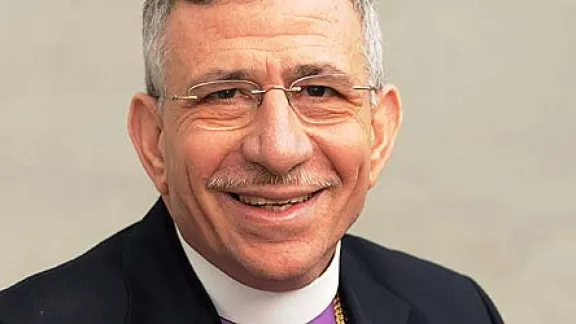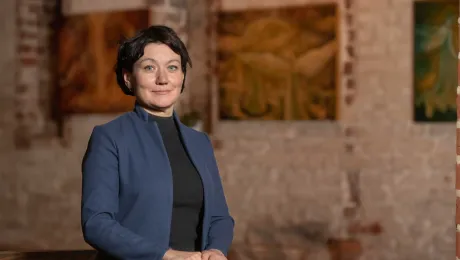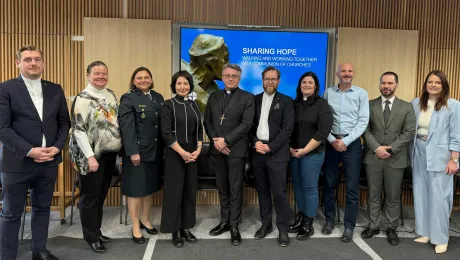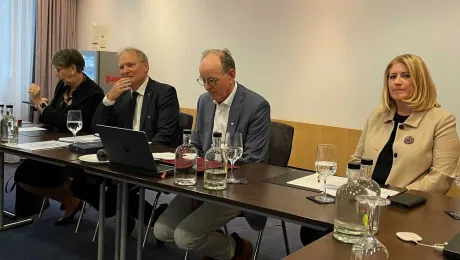
LWF President Bishop Dr Munib A. Younan. © LWF/H. Putsman Penet
LWF President Younan Speaks at Conference on Christians in the Middle East
"We do not live in the mentality of the ghetto, nor in the mentality of a minority complex, nor do we live as dhimmi (dependent) people," said Bishop Dr Munib A. Younan. "We have always been, as Arab Christians, building our societies, loyal to our countries and nationalities, bringing hope in hopeless situations." Younan, bishop of the Evangelical Lutheran Church in Jordan and the Holy Land (ELCJHL), was speaking at a joint World Council of Churches (WCC) and Middle East Council of Churches (MECC) conference on the Christian presence and witness in the Middle East, on 22 May in Beirut, Lebanon.
He particularly stressed a stronger engagement between Christians and Muslims. "Dialogue is important in some contexts, but we need full engagement. We need engagement with all monotheistic faiths, especially Muslims." The ELCJHL bishop acknowledged the MECC's vital role in developing a constructive "intra-Christian" engagement, including involvement of the Evangelical family.
He noted that churches in the Arab world need further engagement with the global church, especially in the West. "Sometimes we express disappointment with churches and church-related organizations in the West. We are tired of their speeches. We want action," he said.
In reference to the Palestinian-Israeli conflict, Younan mentioned ecumenical initiatives such as the WCC Ecumenical Accompaniment Programme in Palestine and Israel, which he said have helped to develop a common plan of action for how Christians can raise their voice against the occupation.
He concluded by saying that the current challenges in the Middle East are a "Kairos moment" for Christians. "It is a chance for us to remind the world that the conflicts in the Middle East are not religious. We know that extremism is not the monopoly of one religion alone and that more than just one people is capable of violence." (Adapted from a WCC press release) Full speech of Bishop Munib Younan at the WCC conference WCC programme "Churches in the Middle East"


